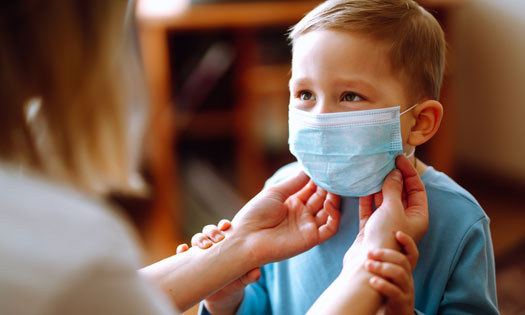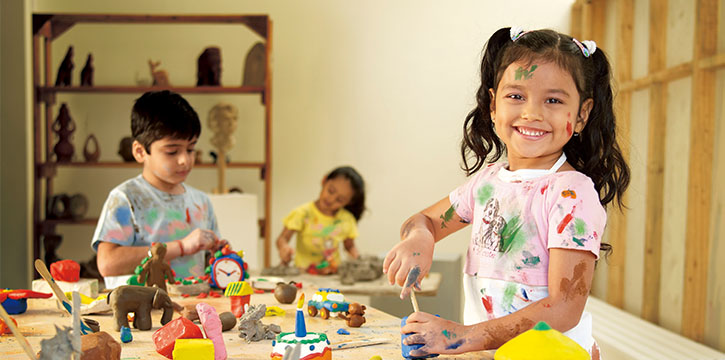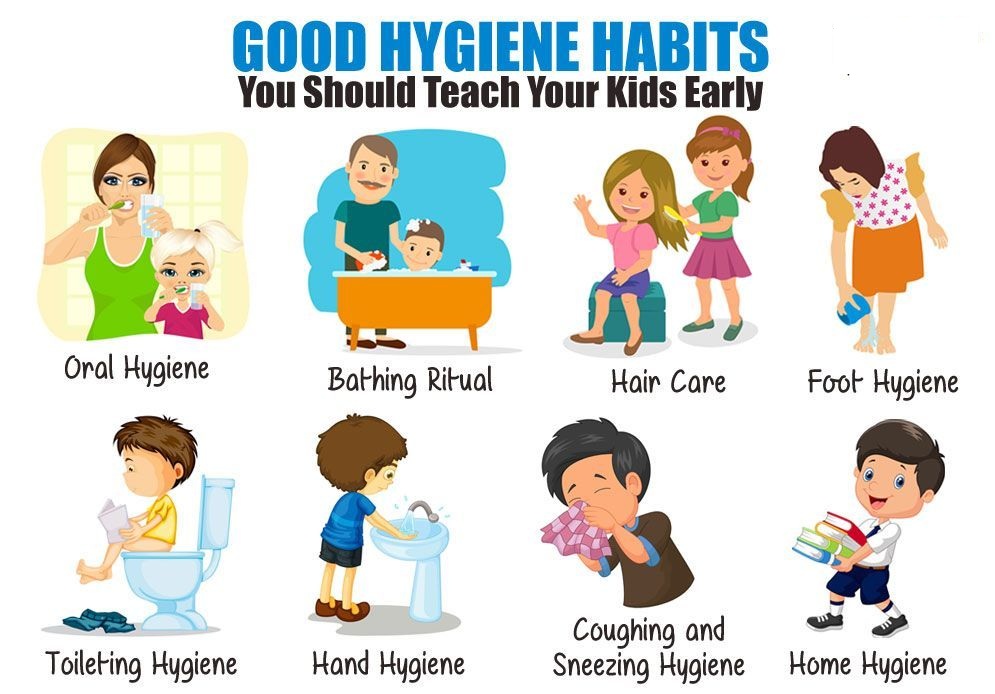TAKING CARE OF CHILDREN DURING COVID-19 PANDEMIC
The emergence of corona virus disease (COVID-19) has caused widespread concern and to some extent panic among people. Therefore, it is clear to parents that there are questions about the effect of this disease in children and what they can do to protect their children. Through this article, some questions and issues have been addressed to provide clarity and guidance to parents in this matter.

Does Corona virus Affect Children?
COVID-19 is called “Novel Corona virus” for one reason. Much remains to be learned about how this disease affects children. But according to the data available to date in this outbreak, children have relatively fewer cases, milder symptoms and better prognosis as compared to adult cases. According to the final report of the Joint Mission set up by the World Health Organization and China to study corona viruses in China, only children under 18 years of all reported cases were 2.4%, and most were mild. A severe case developed in only 2.5% of children under 19 years of age; 0.2% was severe.
What if my child has fever, cough and sore throat?

Try your best to keep calm.
Home Page of this website for Updates Click here
Talk to a healthcare provider. The doctor will take a detailed history and assess the severity of the condition. Only if there is a history of close contact with a COVID-19 patient, so the test can be recommended. There are many reasons for fever and sore throat in children which can be controlled with regular medicines. Therefore it is important to follow the instructions given by your paediatrician. Help your child to get plenty of rest and drink lots of fluids.
How to keep children busy at home?

Most schools and colleges are closed due to the lockdown. But many of them are uploading daily tasks and some lessons so that the flow of their studies is not interrupted. Make sure that your children dedicate some time to their educational curriculum.
Indoor games, activity books, and puzzles will be fun for children and will be a way to prevent them from constantly sticking to mobile games.
Children can spend a lot of time on a TV or computer / laptop. Try to limit the screen time to no more than a few hours per day.
Children can be encouraged to pursue hobbies like painting, reading story books, cooking etc.
Family yoga or simple exercise together can relieve stress and keep everyone healthy.
Focus on the positive. Don’t forget to laugh and enjoy quality time with your children.

What are the other things to keep in mind?
Children, especially if they are older, may become anxious and may have a lot of misunderstandings. Talk to them, answer all their questions and make them feel safe.
Today, most teenagers are quite active on social media and various digital platforms. Let them emphasize the difference between real and fake news and provide guidance about responsible online behaviour.
Children can pick tantrums by not going to restaurants or malls. They need to calmly explain the need for social distancing. Also, teach them to incorporate clean practices as part of the daily routine even after the lockdown ends. This will benefit them in the future as well.
Promote healthy eating habits. Parents can adopt new methods to promote homemade food.
Remember to stay at home and be safe.
Note signs that your child may need more medical help, such as shortness of breath, rapid breathing, lack of sleep, not being able to eat or drink, or signs of dehydration such as less frequent urination. Do. If yes, take the child to the Doctor immediately.
How to promote hygiene practices among children?

Children can be the greatest health warriors. Explain the importance of the following clean practices and their role in disease prevention.
Teach them to wash hands with soap and water for at least 20 seconds or use an alcohol-based hand sanitizer.
Tell them to avoid touching the eyes, nose and mouth repeatedly or without washing their hands.
Ensure that children follow good respiratory hygiene. This means that while coughing or sneezing, cover your mouth and nose with a bent elbow or tissue. Then dispose the used tissue immediately.
Use regular household cleaners or wipes to clean things that touch too much (door knob, light switch, toys, remote control, phone, etc.). Do this every day.
Finally lead by example. Children learn what they see, so parents who follow good hygiene will encourage their children to do the same.













